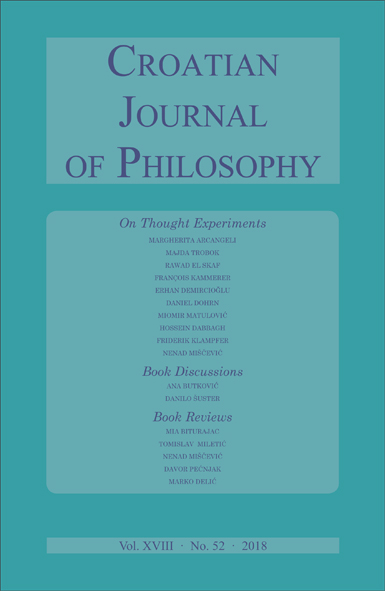The Hidden Links between Real, Thought and Numerical Experiments
The Hidden Links between Real, Thought and Numerical Experiments
Author(s): Margherita ArcangeliSubject(s): Epistemology, Contemporary Philosophy, Philosophy of Mind, Philosophy of Science
Published by: KruZak
Keywords: Real experiments; thought experiments; computer simulations; mental models; imagination;
Summary/Abstract: The scientist’s toolkit counts at least three practices: real, thought and numerical experiments. Although a deep investigation of the relationships between these types of experiments should shed light on the nature of scientific enquiry, I argue that it has been compromised by at least four factors: (i) a bias for the epistemological superiority of real experiments; (ii) an almost exclusive focus on the links between either thought or numerical experiments, and real experiments; (iii) a tendency to try and reduce one kind to another; and (iv) an excessive attention to the outputs of these types of experiments, more than to their processes. In this paper I support an unbiased triangular comparative analysis that focuses on the processes involved in real, thought and numerical experiments, and claim that all three types of experimentation are fundamental to scientific research. I do so by clarifying different notions of experimental processes, and by introducing a distinction between two varieties of mental simulation that play a role in them (i.e., mental models and imaginings). I then compare real, thought and numerical experiments in light of this distinction, showing their similarities, but also fundamental differences, which suggest that none of them is dispensable.
Journal: Croatian Journal of Philosophy
- Issue Year: XVIII/2018
- Issue No: 52
- Page Range: 3-22
- Page Count: 20
- Language: English
- Content File-PDF

